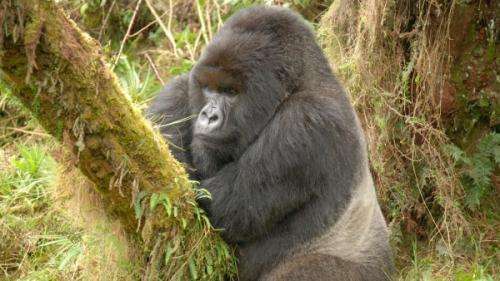Territorial overlap led to cognitive advance

The myriad challenges involved in animal groups sharing territory has been shown to be a key driver in the march towards higher intelligence in primates, including humans.
Research by University of Western Australia Associate Professor Cyril Grueter substantiates esteemed evolutionary biologist Richard Alexander's foundational works on human social evolution.
"I've always been interested in why so much variation occurs in primate brain size," A/Prof Grueter says.
"[British anthropologist] Robin Dunbar hypothesised the social brain model, that if you live in a large group you will have a cognitive-demanding social life because you need to remember details and interactions with other members.
"Others point to environment—the place where you live. You have to have cognitive skill to create a mental representation of the landscape so you can remember details such as where to find fruit trees.
"Alexander saw home range overlap as key, because intergroup conflict would lead to numerous challenges."
These include competition for resources and mates, strategies for security, and cooperation within and between groups—suggesting those with the higher intelligence were more likely to survive.
"Primates with substantial home range overlap need to regularly monitor the movements of groups in their vicinity and often encounter unfamiliar individuals that could pose serious threats to them," Prof Grueter says.
"They need to recognise friends and foes."
This skill would be enhanced by the ability to create a mental map of others' locations, so as to avoid confrontation and take evasive manoeuvers.
A group's ability to pool knowledge for collective defence or to build networks of cooperation would also denote an advantage—the characteristic of 'shared intentions' being a hallmark of complex communities.
To test Alexander's theory, Prof Grueter used a novel approach, employing Phylogenetic Generalised Least Squares Regression with endocranial volume as a proxy for cognitive ability and homeland overlap as a surrogate variable for intergroup conflict.
He drew on brain size data compiled by Swiss anthropologist Karin Isler, who measured the endocranial volumes of 176 non-human primates in almost 4000 museum specimens.
"I found a significant relationship between home range overlap and endocranial volume, even after controlling for other variables, such as group size," Prof Grueter says.
"This suggests species that faced greater overlap were endowed with higher cognitive abilities."
Prof Grueter is now turning to real-world research, working with a PhD student to monitor instances of conflict between ten different groups of Mountain Gorillas in Rwanda.
"We are recording their encounters to gain insight into conflict escalation in our closest relatives," he says.
More information: "Home range overlap as a driver of intelligence in primates." Am. J. Primatol.. doi: 10.1002/ajp.22357
Provided by Science Network WA

















